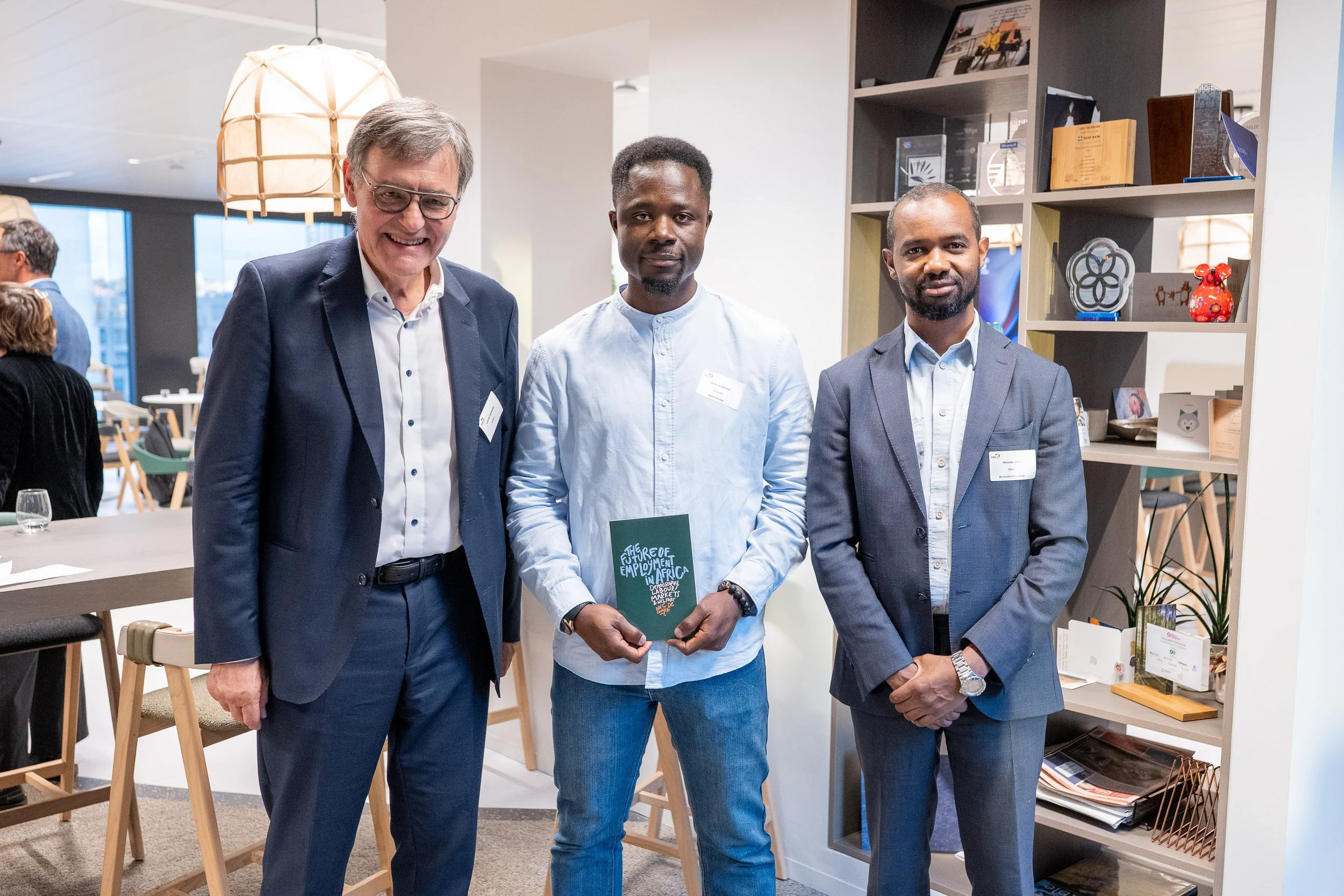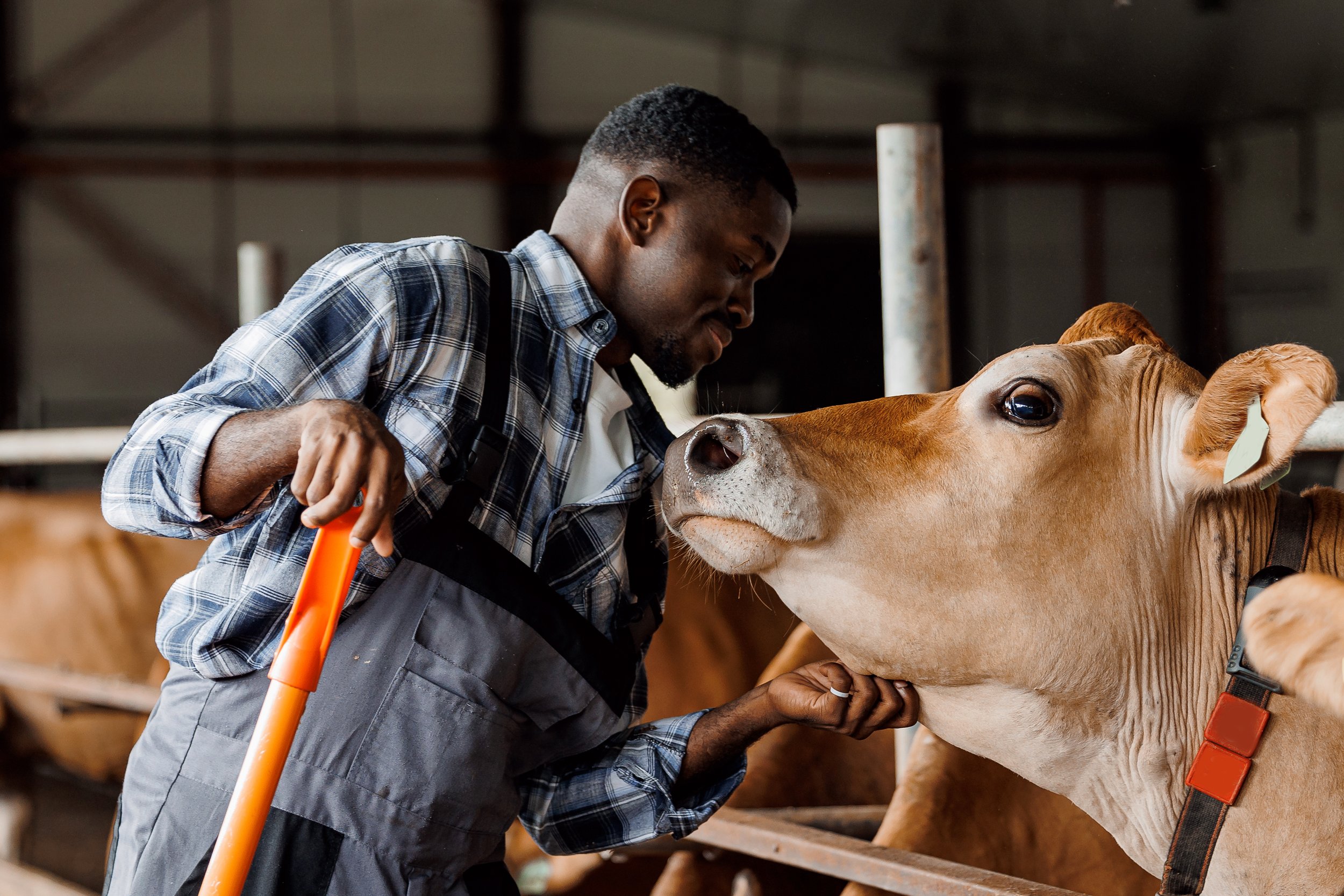I had an invitation to participate in the presentation of the book: The Future of Employment in Africa by Loic De Cannière in Brussels, and it was more than just a book launch, it was a strategic conversation about one of the most urgent economic questions of our time: how to unlock Africa’s demographic dividend through investment, innovation, and collaboration.
Bringing together business leaders, policymakers, investors, and diaspora actors, the event shed light on what is required to shift the trajectory of employment in Africa, not just through charity or policy declarations, but through bold, private-sector-led action with global relevance.
Challenging the Lens on Africa’s Future
Loic De Cannière, founder of Incofin Investment Management, began his remarks by addressing a problem that’s both intellectual and practical: the future of Africa is grossly understudied. “Much has been written about Africa’s past, its colonisation, conflicts, and crises, but far less about its future,” he remarked.
For Mr. De Cannière, this imbalance is not just an academic oversight; it’s a strategic failure. If we are to respond meaningfully to Africa’s demographic, technological, and environmental transitions, we must ground our efforts in rigorous, forward-looking analysis, one based on lived experiences on the ground, not outdated tropes or high-level abstractions.
Equally critical, he noted, is dismantling the dominant representation of Africa in commercial media, one saturated with images of poverty, hunger, and instability. While these challenges are real, they obscure what Mr. De Cannière calls “Africa’s dynamism” which is the resourcefulness, innovation, and entrepreneurial drive that is alive across the continent. “There is an African Renaissance taking place,” he asserted, “even if it remains modest, fragmented, and undercapitalised.”
He issued a direct appeal to European policymakers: prioritise Africa. Not as a humanitarian afterthought or a geopolitical pawn, but as a strategic partner in solving global challenges such as labour shortages, climate adaptation, and sustainable growth.
Investment Must Be Market-Driven, Not Politicised
This call for prioritisation was echoed and sharpened by Joris Totté, CEO of BIO Invest, Belgium’s development finance institution. Totté offered a grounded assessment of the EU’s Global Gateway initiative which is a multi-billion-euro framework aimed at fostering investment in strategic sectors globally, including in Africa.
While optimistic about the potential of the initiative, Mr. Totté issued a strong caution: “There is nothing more dangerous than investment driven by politics.” Although public interests and foreign policy can shape strategic directions, actual investment decisions must remain economically sound and impact-driven.
He pointed to the risk of geopolitical interference in funding allocations which can lead to financing the wrong businesses for the wrong reasons, which would not only waste resources but also erode trust in public-private partnerships. His solution: anchor investments in local, scalable private enterprises that demonstrate good governance, environmental responsibility, and the potential for sustainable job creation.
Mr. Totté's comments reframed the “Marshall Plan for Africa”, a phrase gaining traction in policy circles which is not as a one-size-fits-all package, but as a targeted effort to back viable businesses with the power to grow jobs at scale, especially in green industries, digital transformation, and inclusive infrastructure.
The Core Message: Jobs Are the Fulcrum or Lever
What emerged from all speakers including the likes of H.E. Bitange Ndemo who is Kenya's Ambassador to Belgium & EU and Professor of Entrepreneurship, Mouctar Bah, who is the President Brussels Africa Hub, Christopher Egnankou, President Madiba Club at Solvay Brussels School of Economics and management and from moderator John Vandaele’s from Mo*Magazine concluding reflections, is a singular insight: Africa has potential, but potential without investment is inertia.
As The Future of Employment in Africa outlines, the continent faces five structural challenges:
Demographic pressure with a doubling population by 2050
Informal sector dominance, which remains low in productivity and security
Skills mismatches that leave youth underprepared for modern jobs
Digital exclusion that limits global integration
Climate stress, particularly in agriculture-dependent economies
Yet the book is not a catalogue of problems. It is a call to unlock Africa’s demographic dividend by leveraging five interconnected opportunities:
A tech-savvy, youthful workforce ready to become a global talent hub
The power of digitalisation to reduce costs and broaden access
The rise of market-creating innovations driven by local entrepreneurs
A green economy in need of investments, from renewables to waste recycling
Employer optimism in Sub-Saharan Africa as a future skills hotspot
To seize these opportunities, De Cannière proposes concrete pathways:
Massive investment in human capital (education, technical skills, lifelong learning)
Scalable digital infrastructure and access
Formal job creation strategies across sectors
Purpose-driven use of AI tailored to African contexts
Climate-aligned green growth investment frameworks
A Call to Action for Practitioners and Policymakers
The event was not just a showcase of ideas, it was a mirror held up to all of us who are active in development, investment, or entrepreneurship in Africa. Whether you are part of the diaspora, a policy strategist, a VC fund manager, or an NGO leader, The Future of Employment in Africa provides a useful framework to align your efforts with the continent’s needs and aspirations.
It is not enough to admire Africa’s potential from afar. It is time to act on it, through smart capital, inclusive partnerships, and locally grounded strategies. And, as Mr. De Cannière underscores, to do so with a forward-looking mindset that breaks with outdated images and embraces the continent’s role in shaping the global economy of the 21st century.
Recommended Reading — and Reflection
I strongly recommend The Future of Employment in Africa to anyone seeking to understand not just what Africa is facing, but what it can become. Let it challenge your assumptions. Let it inspire new partnerships. And above all, let it guide concrete actions in your work, investments, or advocacy.
What do you think about the future of work in Africa?
Let’s continue the conversation.
















